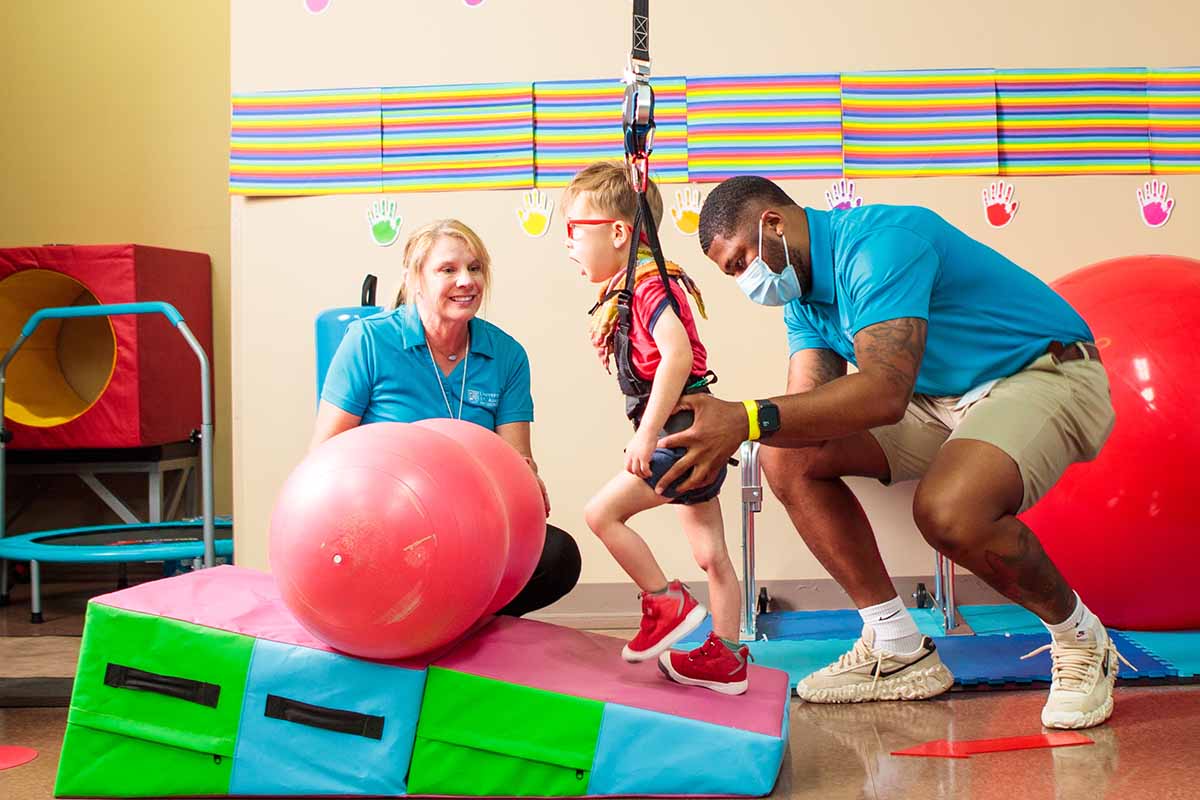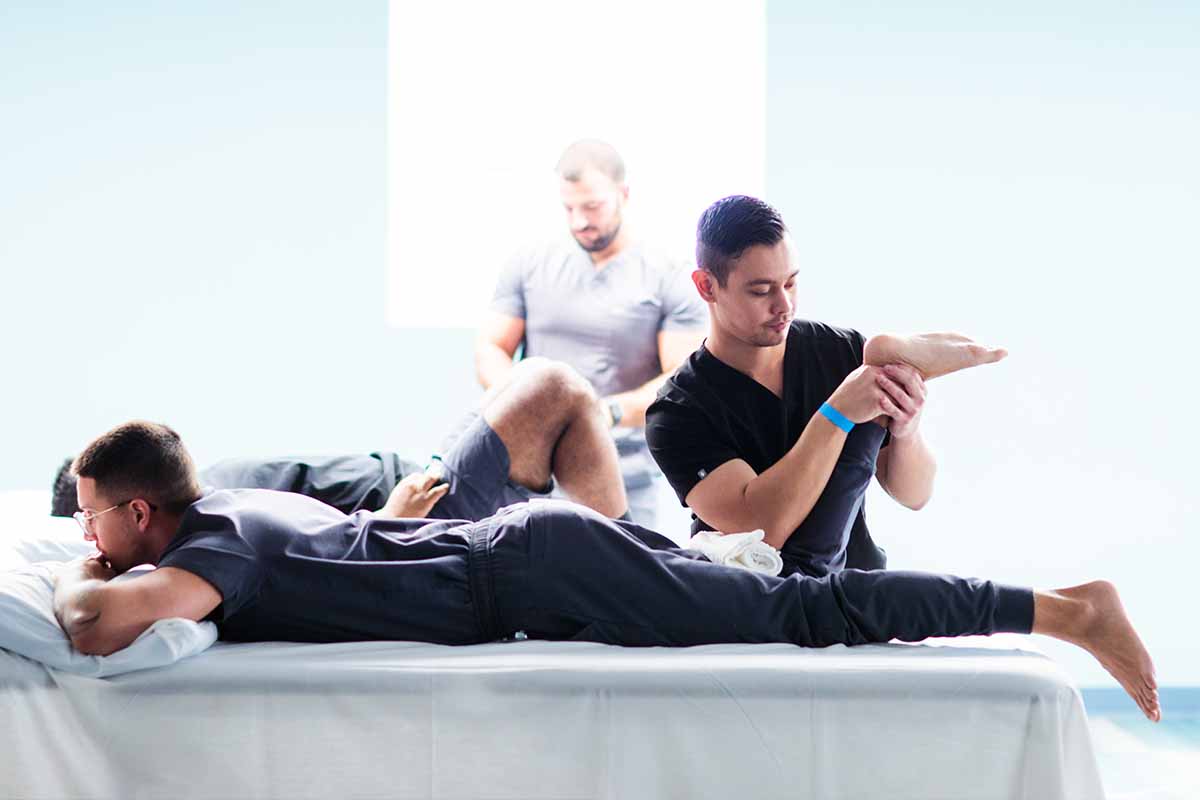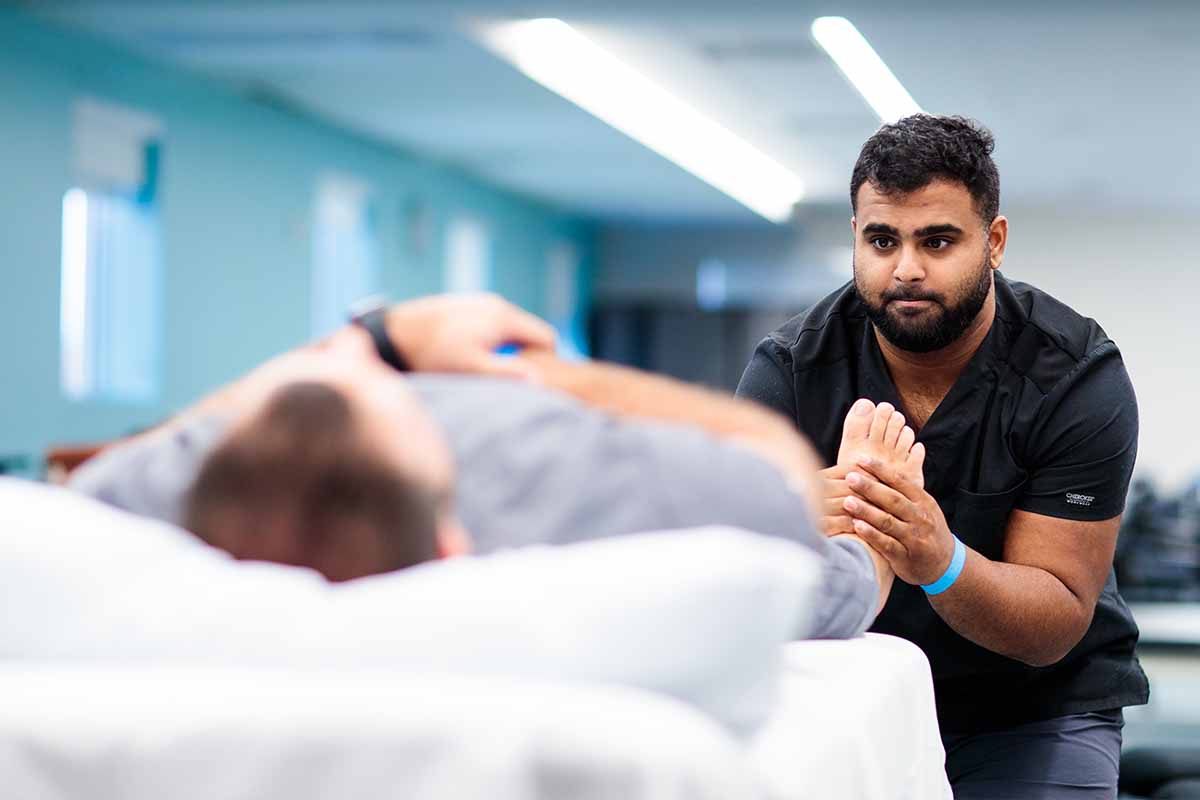
Faculty and students at the University of St. Augustine for Health Sciences (USAHS) in Miami are on a mission: to empower individuals battling Parkinson’s disease (PD) to reclaim control over their bodies and lives.
Through a groundbreaking alliance with the Brain Center, a non-profit comprehensive outpatient neurological program in Coral Gables, FL, and Rock Steady Boxing, a boxing-based fitness curriculum for individuals with PD, they’ve established the transformative Rock Steady Boxing (RSB) Pro-Bono Clinic. Together, they are trailblazing a novel approach to Parkinson’s therapy and making waves in the community.
Collectively Improving Lives
Miguel Garcia, PT, DPT, EdD, an associate professor in the Doctor of Physical Therapy (DPT) program at USAHS Miami, organized the initiative.
When he joined USAHS, he saw an incredible opportunity to integrate community outreach with student education. He explains that the Brain Center shares the University’s vision of preventive care and community support, making the collaboration opportune.
“I’ve always been a big proponent of providing students with the opportunity to meet and treat patients before the internship experience,” Dr. Garcia says.
The collaboration with the Brain Center began with a Falls Prevention Clinic in 2019 and in 2020, USAHS added the Rock Steady Boxing Pro Bono Clinic to its community programming. Dr. Garcia and five fellow USAHS DPT faculty members got certified as boxing coaches and launched the virtual clinic in the fall of 2020, eventually transitioning to in-person sessions in early 2022.
Dr. Garcia elaborates, “We saw the potential of the boxing clinic to revolutionize Parkinson’s therapy.” He partners with the Brain Center, which sends patients who could benefit from this pro bono clinic. The participants vary in physical capabilities, but the program allows modifications to fit each boxer and their limitations. Some have to sit in a chair, while others have no significant functional restrictions.
So, why boxing? The classes incorporate cardio, resistance training and boxing routines tailored to address the unique needs of individuals with PD. The exercises help them to improve balance, coordination and overall quality of life.


Empowering Parkinson’s Progress
Each group class consists of an active warm-up, followed by traditional strength training and functional mobility exercises, and culminates with non-contact boxing drills. DPT students create and implement The various exercise stations in their Neuromuscular II and III courses.
Dr. Garcia explains, “The idea is to challenge patients with high-intensity, yet safe, exercise to slow the disease progression.”
What sets this program apart is the active involvement of USAHS DPT students. Dr. Garcia beams with pride as he describes their role: “Our students design the courses, lead exercises and work closely with patients. They gain invaluable real-life experience, understanding patient needs beyond textbooks.”


RSB Pro Bono Clinic participants speak highly of their interactions with students. “Participants share that USAHS students are professional, passionate and engaged. You see a lot of smiling faces,” Dr. Garcia says.
Occupational therapy (OT) students at USAHS also host a weekly pro bono clinic at Rock Steady Boxing, guided by Claribell Bayona, OTD, OTR/L, CSRS, assistant program director, occupational therapy programs at USAHS Miami. Dr. Garcia describes that the OT clinic exercises are distinct and have stations centered on daily activities such as dressing and cooking.


Continuously Increasing Engagement
Challenges abound in Parkinson’s therapy, but the clinic tackles them head-on. Dr. Garcia notes, “The unpredictable nature of the disease poses obstacles. Our tailored approach and student-led sessions address these challenges effectively.”
Initial research conducted by USAHS Miami faculty members discovered that the classes yielded positive enhancement in quality of life within six months.
Study participants noted enhanced emotional wellness and reduced physical discomfort. Dr. Garcia says the research indicates that regularly attending Rock Steady Boxing classes could help individuals with PD maintain their current level of function and possibly slow the progression of the disease when combined with appropriate medical management initiatives.


Measuring effectiveness is paramount. Dr. Garcia leads research initiatives along with Gabriel Somarriba, PT, DPT, EdD, program director of DPT at USAHS. He affirms, “We assess progress through qualitative feedback and observe improvements in physical and mental well-being. As we formalize our study, we’ll have concrete metrics to gauge success.”
Dr. Garcia shares the unified success: “We started with six boxers in 2022; now, we have 70 and continue to see a surge in patients. Every term, our outreach expands.” He says the growing awareness of the program is evident.
“It truly is a positive experience for all involved, our boxers, students and faculty,” Dr. Garcia asserts.


Expanding Community Impact
Dr. Garcia envisions growth in capacity. “We aim to accommodate more patients for broader outreach. We hope to continuously enhance the quality of life for Parkinson’s patients in the community.”
The Brain Center also refers patients to other USAHS pro bono clinics. “At the boxing clinic, we address Parkinson’s patient health more globally; when they come to our other clinics, we can treat their individual needs,” Dr. Garcia explains.
The dedicated faculty, students and partners are rewriting the narrative of Parkinson’s therapy, one punch at a time.
Learn about the Rock Steady Boxing Pro Bono Clinic and read the South Florida Hospital News article.










